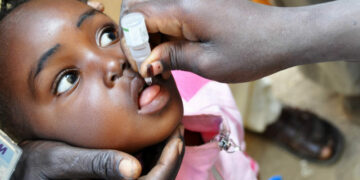Once again, Nigeria finds itself gripped by a cholera outbreak that has claimed dozens of lives and sickened over a thousand others across the states.
The latest figures from the Nigeria Centre for Disease Control and Prevention (NCDCP) paint a grim picture – 1,141 suspected cases, 65 confirmed cases, and 30 fatalities spanning 96 local government areas in 30 states.
This entirely preventable public health emergency lays bare the systemic failures in providing safe water, sanitation, and hygiene to the citizens.
The states bearing the brunt of this outbreak – Bayelsa, Zamfara, Abia, Cross River, Bauchi, Delta, Katsina, Imo, Nasarawa and Lagos – account for 90 per cent of the cholera burden.
Yet, this crisis extends far beyond these 10 states, a sobering reminder that no corner of the country is immune when basic necessities like clean water and proper sanitation are lacking.
Needless to say , in our opinion, the government must do everything possible to avoid a repeat of 2010. We recall that in that year, Nigeria had its worst cholera outbreak in recent memory with nearly 40,000 cases and more than 1,500 deaths reported according to a United Nations report.
In 2014, Nigeria recorded 35,996 cases and in 2015, 2,108 cases were reported, with 97 deaths. Suffice it to say, cholera has become a recurring decimal in the country‘s list of healthcare challenges.
It is instructive to note that cholera, a waterborne disease, caused by ingesting the Vibrio cholerae bacteria, thrives in environments with poor hygiene and contaminated water sources.
As the rains intensify, the risk of further spread escalates, underscoring the urgency for proactive measures.
The Lagos State University Teaching Hospital (LASUTH) has sounded the alarm, declaring a state of red alert and preparedness to combat the potential spread of cholera within the state.
LASUTH’s proactive measures are commendable, but they should not have been necessary in a nation with the resources and capabilities as are evident in Nigeria.
The Lagos State Government has also issued a call for heightened vigilance and precautionary measures, acknowledging the outbreak’s toll in Eti Osa, Lagos Island, Ikorodu, and Kosofe Local Government Areas.
The state’s Commissioner for Health, Akin Abayomi, has rightfully highlighted the increased risk posed by recent rains and the vulnerability of urban slums and crowded areas with poor sanitation.
In our view, this scourge is both a public health catastrophe and a moral failing on the part of the authorities tasked with safeguarding the well-being of the populace.
How can a nation as resource-rich as Nigeria continue to grapple with a disease that has been largely eradicated in countless other parts of the world? We ask this question in the light of the appalling predilection on the part of the government to trivialise, if not politicise matters that relate to the overall well-being of the average citizen.
The answer lies in the chronic underinvestment in critical infrastructure, lack of political will, and deeply entrenched poverty and inequality that leave millions vulnerable.
Clean water, a fundamental human right, remains a luxury for far too many Nigerians. Contaminated sources, dilapidated distribution systems, and inadequate treatment facilities perpetuate the vicious cycle of waterborne illnesses like cholera.
The consequences are dire, with families losing loved ones and communities trapped in a perpetual state of insecurity.
No doubt, the solutions to this crisis are well-known and within our grasp. Investing in robust water treatment and distribution systems, improving sanitation infrastructure, and promoting hygiene education are critical steps in breaking the cycle of cholera outbreaks. These measures not only save lives but also promote economic development and societal well-being.
Yet, year after year, we find ourselves grappling with the same preventable tragedy. Resources are diverted, promises are made, and plans are outlined, but the fundamental issues remain unresolved.
In our opinion, it is time for a paradigm shift in our approach to public health emergencies like cholera. We must move beyond reactive measures and embrace a proactive, comprehensive strategy that addresses the root causes of these outbreaks.
Investing in prevention is not only a moral imperative but also an economic necessity, as the costs of responding to outbreaks far outweigh the investments required to prevent them in the first place.Or for that matter, provide curative measures when the disease breaks out.
We strongly suggest that there should be a concerted effort from all stakeholders – government, healthcare providers, civil society organizations, and the general public.
Nigerian citizens, too, have a role to play in breaking this cycle. Adhering to proper hygiene practices, advocating for improved sanitation in their communities, and holding authorities accountable for addressing these systemic failures are crucial steps toward a cholera-free Nigeria.
The country, we dare say, has the resources, the expertise, and the potential to be a leader in public health and disease prevention. Yet, our actions have fallen woefully short of our capabilities.
It is time to rise to the challenge, to embrace a holistic approach that prioritises access to clean water, proper sanitation, and quality healthcare for all. Only then can we truly claim victory over cholera and the scourge of preventable diseases that continue to plague our nation.





